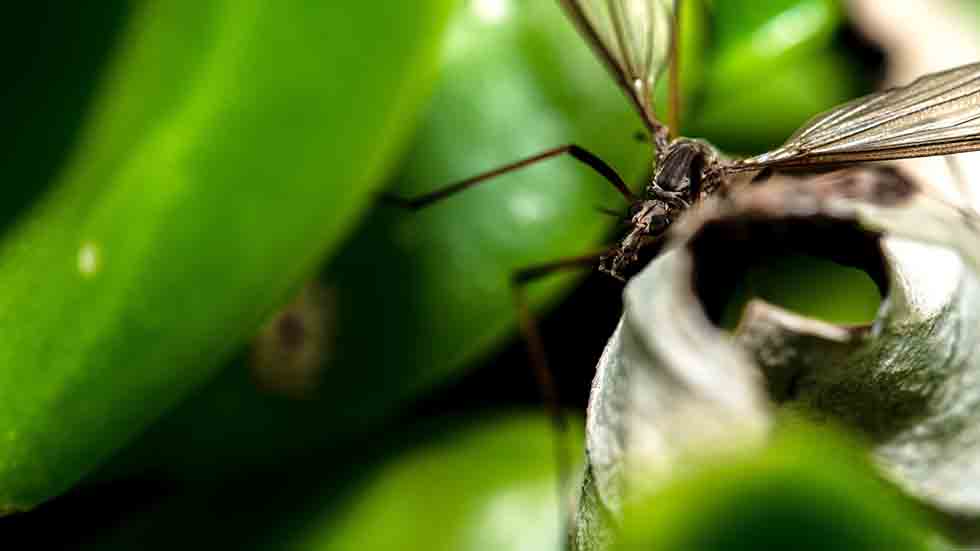

If you’re hiking or camping this summer, you want to make sure you’re educated on wildlife you may come across, and how to protect yourself against them. While some animals may be harmless, others can be dangerous and destructive. Follow these tips for protecting yourself from four of the most common animals you may come into contact with.

Bears
If you’re spending time hiking and camping in the wilderness, you’re most likely to come across black bears or brown bears (also known as grizzlies). Black bears are most commonly found in the east, along the west coast, in the Rocky Mountains, and in parts of Alaska. Grizzlies are mostly located in Alaska, Canada, and portions of the northwestern U.S. (like Idaho, Montana, Washington and Wyoming).
If you come across a bear while hiking:
-
Make a lot of noise.
-
Keep your distance, especially from cubs. Try to stay at least 100 yards away.
-
Avoid bear food, like berry patches and dead animals. Those will likely attract bears and increase your chances of running into one.
-
Keep your camp tidy. Pick up and properly dispose of trash, and hang your food in a bear-proof container.
-
Always carry bear spray, just in case.
Ticks
Ticks are in fact a relative of spiders, and if you look closely at one, it looks like a spider with its eight legs and lack of antennae. Ticks require blood to survive, and while they will primarily feed on deer, they will also bite other animals they come into contact with… including humans. Ticks don’t fly, but simply crawl in grass or low brush, and then clasp onto a passing human or animal.
While they are known for carrying Lyme disease, they need between 24-48 hours of feeding to properly transmit the disease. That’s why it’s crucial to regularly check yourself for ticks if you’re out in the woods and remove them as soon as possible.
To avoid coming in contact with ticks:
- Know where not to go. Ticks live in wooded, grassy, and bushy areas, so try and avoid them.
- Use repellent. Spray your clothes and gear with permethrin, which both repels and kills ticks.
- Do a full-body check—regularly, including your armpits, scalp, behind your ears, and everywhere else.
- If you see a tick on you, get as close to the skin as possible and remove the head with tweezers. Pull upward with even pressure—do not jerk or twist the tick, because the mouth could break off and remain in your skin.

Cougars
Also known as the puma or mountain lion, cougars are the second-largest cat in North America and can primarily be found in the western U.S. and Florida. They cannot roar like a lion, but they do make calls that sound like a human scream and they purr like a housecat. They can also easily climb trees and jump over 20 feet.
While their population has significantly decreased over the years, there are still thousands out there that you could encounter.
If you do see one:
- Stay calm. Stand your ground and do not run away.
- Make yourself big. Raise your hands, spread your jacket, and try to appear as large as possible.
- Be loud. Maintain eye contact with it, speak or yell loudly, and clap firmly.
- Pick up small children, but don’t bend down to do so. Never take your eyes off the cat.
- Move away slowly.
If you are attacked, fight back with rocks and sticks, and protect your neck and face.

Mosquitos
While the biggest mosquito safety concern is West Nile Virus, it’s more likely you want to avoid them due to the itchy bite they leave behind. Plus, they can simply be annoying. Mosquitos have receptors on their antennae that they use to detect the carbon monoxide we release when we breathe. They are attracted to the CO2, and will use heat sensors around their mouth to detect the blood in your body. They then land on you and try to locate the best place for them to bite.To avoid these pesky insects:
- Know when they are most active, which is dawn and dusk.
- Wear loose-fitting long sleeves and pants to protect your skin.
- Spray yourself with repellent.
- When camping, always keep your tent door closed.